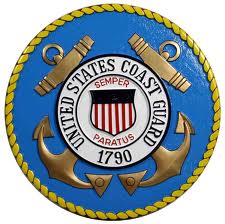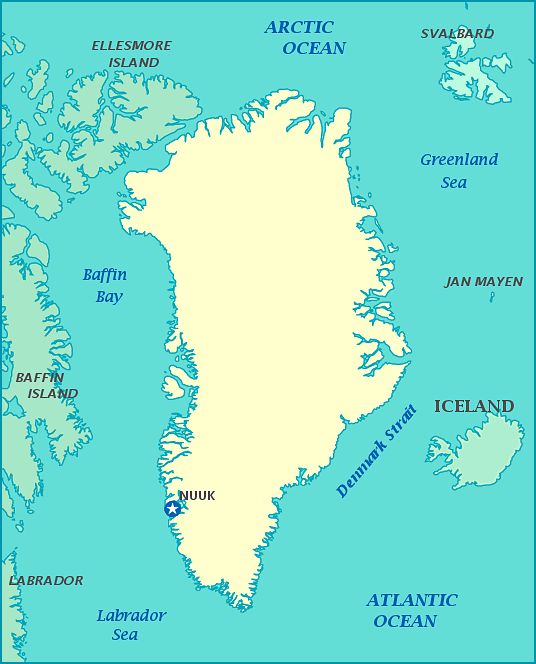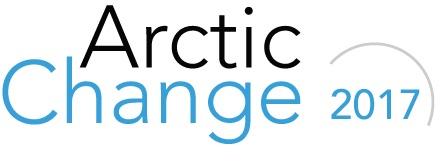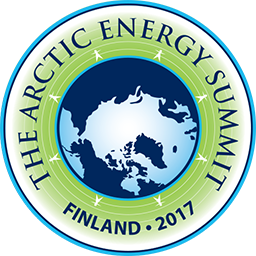|
|
|
|
|
|
|
|
As the Symposium is organized jointly by two leading Research Institutes of Russian Academy of Science - Institute of Water Problems and Melnikov Permafrost Institute, particularly the contributions on following research topics are welcome:
- Observational evidences of change in coupled permafrost-hydrology system.
- Present state and future projections of local, regional and pan-Arctic hydrology.
- Modeling studies representing landscape evolution, dynamics of water storage and permafrost degradation.
- Impacts of permafrost hydrology changes on local communities.
|
Media
'Viking' Rowers Break Records on Epic Voyage Across Arctic Ocean. A team of some of the best rowers in the world are crossing 2,000 kilometres of Arctic Ocean, breaking records and going farther north than any rowers have gone before. Fiann Paul and the Polar Row crew are in the midst of a six-week voyage rowing north through the Norwegian Sea from Tromso, Norway, to the archipelago of Svalbard and then south to Iceland. CBC News
Canary in the Arctic Coal Mine: Warming Harms Migrating Red Knot. What happens in the Arctic, doesn't stay in the Arctic: change flows south of the Arctic Circle as an altered jet stream brings extreme weather to middle latitudes, some scientists say. It also rises, as thawing permafrost leaks CO2 and methane into the atmosphere, heightening global temperatures. And, more and more, it flies out of the North, into temperate and tropical ecosystems, as migratory birds are impacted adversely by a hotter Arctic climate. In recent years, climate change-affected migratory species have become a major focus of the Arctic Council's Conservation of Arctic Flora and Fauna subgroup, and the United Nations Convention on Migratory Species. Both are trying to determine not only how climate change is altering Arctic ecosystems, but how those shifts are impacting ecosystems to the south, with migratory animals - especially birds - acting as a kind-of vector of transmission. Mongabay
 Coast Guard Reintroduces Shipboard Diving Capabilities to Arctic. Coast Guard Reintroduces Shipboard Diving Capabilities to Arctic. U.S. Coast Guardsmen and U.S. Navy Sailors conducted shipboard dive operations from a Coast Guard cutter in the Arctic July 29 for the first time since two Coast Guard divers perished in a subsurface accident almost 11 years ago, the Coast Guard said in an Aug. 10 release. Shipboard Arctic dive operations increase the Coast Guard's ability to assure year-round access for national security, sovereign presence and increased maritime domain awareness in the region. The shipboard dive operations also highlighted the interoperability between joint Coast Guard and Navy dive teams. Sea Power
All You Know About Cloudberry- The Healthy Gold of the Arctic. Cloudberries is an important part of northerners' culture, often referred to as «the gold of the Arctic.» Growing in marshlands, boreal forest and along the coastline of northern Scandinavia, Northwest-Russia and throughout the northern hemisphere, the myths about cloudberries are many. Although 2017 seems to be a good season with many warm orange-colored marshlands north of the Arctic Circle, prices for cloudberries are surpassing all other berries on the market. Be prepared to pay at least €15 to €20 per kilogram depending on location. The Barents Observer
Opinion: 'Frankenfish' Spawns Exaggerated Rhetoric as Sales Start in Canada. Canadian customers have purchased the first 4.5 tons of genetically engineered salmon fillets, a product more than a quarter-century in the making, that the fishing industry in Alaska will have to get used to. The fish grown at a plant in Panama are not an immediate economic threat to the salmon industry in Alaska, but you wouldn't know it from the exaggerated rhetoric their creation has spawned. As the state celebrates "Alaska Wild Salmon Day" for the second time Thursday, here is a look at a new fledgling entry among farmed competitors. Alaska Dispatch News
Cutter Maple Reaches Northwest Passage. The Coast Guard Cutter Maple reached the Northwest Passage Thursday (8-3-17), less than a month after departing its former home port in Sitka. In reaching Canada's Arctic waters, the Maple has transited over 3000 miles since departing Sitka on July 12th and is accompanied by the Canadian Coast Guard Ship Wilfrid Laurie and its crew. The Maple is en route to Baltimore, where it will be dry docked for a year to receive repairs and upgrades. KCAW
 Add Greenland to the Growing List of Counties on Fire. Add Greenland to the Growing List of Counties on Fire. Greenland, where even the capital Nuuk, is located north of the Arctic Circle, is mostly famous for one thing-its ice. This isn't exactly a surprise given that roughly 80 percent of the nation is covered in frozen water, mostly in the form of glaciers. What is surprising, however, is, that there's a massive, wildfire burning roughly 90 miles northeast of Sisimiut, a town of 5,500 situated on Greenland's west coast. This isn't the only place currently on fire-Popular Science has tracked wildfires across the United States, Canada, and much of Europe and beyond. But in what is already a weird fire season, this may be the most bizarre. Popular Science
|
|
Future Events
VII International Conference on Cryopedology, August 21-25, 2017 (Yakutsk, Russia). The conference will be hosted by the Institute for Biological Problems of the Cryolithozone of the Siberian Branch of the Russian Academy of Sciences (SB RAS). Plenary reports will be organized in the hall of the Academy of Sciences of the Sakha (Yakutia) Republic. The official languages of the conference are English and Russian (with translation). All technical facilities (projectors, computers, video sets) will be available during the conference for presentation of papers. Additional information will be available soon. See the Facebook page here.
** New this week ** IARPC Public Webinar Series: The Fulbright Arctic Initiative (August 25, 2017 1pm EDT) The Fulbright Arctic Initiative during the U.S. chairmanship of the Arctic Council (2015-2017) brought together 16 scholars from across the Arctic region. Using a collaborative model to translate theory into practice, the scholars collectively addressed public policy research questions relevant to the Arctic nations' shared challenges in energy, water, health and infrastructure. The co-lead scholars and some of the individual scholars will reflect on their experiences and the impacts of this unique and innovative variation on the Fulbright model. More information at www.iarpccollaborations.org/webinars
 2017 University of the Arctic Rectors' Forum and Conference, August 27-29, 2017 (Aberdeen, Scotland). This conference will also consider how northern scholarship can add to discussions on the North into broader terrains of intellectual engagement. In so doing, it will challenge dominant paradigms of research in both the natural and the social sciences, above all by calling into question the very separation of the world of nature from that of human society which underwrites the distinction between these two branches of scientific inquiry. In its place the conference will seek to forge a new practice of interdisciplinary research, done in collaboration with northern residents and on their terms, which recognizes that every discipline is itself an ongoing conversation, or a way of knowing, rather than a compartment within an overarching, hierarchically organized system of knowledge. Conversations from the North will, then, help to generate a science that is more open-ended, responsive to environmental variation and respectful of the wisdom of inhabitants. 2017 University of the Arctic Rectors' Forum and Conference, August 27-29, 2017 (Aberdeen, Scotland). This conference will also consider how northern scholarship can add to discussions on the North into broader terrains of intellectual engagement. In so doing, it will challenge dominant paradigms of research in both the natural and the social sciences, above all by calling into question the very separation of the world of nature from that of human society which underwrites the distinction between these two branches of scientific inquiry. In its place the conference will seek to forge a new practice of interdisciplinary research, done in collaboration with northern residents and on their terms, which recognizes that every discipline is itself an ongoing conversation, or a way of knowing, rather than a compartment within an overarching, hierarchically organized system of knowledge. Conversations from the North will, then, help to generate a science that is more open-ended, responsive to environmental variation and respectful of the wisdom of inhabitants.
- Small and off-grid community energy solutions
- Oil and gas development
- Renewable energy
- Regulation and Financing
- Transportation and transmission
The AES is a multi-disciplinary event expected to draw several hundred industry officials, scientists, academics, policy makers, energy professionals and community leaders together to collaborate and share leading approaches on Arctic energy issues.
** New this week ** 5th Northern Oil and Gas Research Form, October 11-13, 2017 (Anchorage, Alaska USA). The United States is hosting the 5th Northern Oil and Gas Research Forum from October 11-13, 2017, in Anchorage, Alaska. This meeting will feature current research and highlight information needs for management of petroleum activities in the US and Canadian Arctic. Abstracts for poster presentations on research and how research is used in management actions are presently being solicited. Please visit the Forum's website (here) for additional details. Deadline for abstract submission is September 10. There is no registration fee for the Forum. Please use the website link above for information on registration, agenda, lodging and transportation.
2017 Arctic Circle Assembly, October 13-15, 2017 (Reykjavik, Iceland). The annual Arctic Circle Assembly is the largest annual international gathering on the Arctic, attended by more than 2000 participants from 50 countries. The Assembly is held every October at the Harpa Conference Center and Concert Hall and is attended by heads of states and governments, ministers, members of parliaments, officials, experts, scientists, entrepreneurs, business leaders, indigenous representatives, environmentalists, students, activists and others from the growing international community of partners and participants interested in the future of the Arctic.
 Polar Law Symposium 2017 and Rovaniemi Arctic Spirit, November 13-16, 2017 (Rovaniemi, Finland). The purpose of the Polar Law Symposium is to examine, in detail, the implications of the challenges faced by the Polar Regions for international law and policy and to make recommendations on appropriate actions by states, policy makers and other international actors to respond to these emerging and re-emerging challenges. The Rovaniemi Arctic Spirit Conference is integrated with the Polar Law Symposium, which will be organized by the Northern Institute for Environmental and Minority Law at the Arctic Center of the University of Lapland. Polar Law Symposium 2017 and Rovaniemi Arctic Spirit, November 13-16, 2017 (Rovaniemi, Finland). The purpose of the Polar Law Symposium is to examine, in detail, the implications of the challenges faced by the Polar Regions for international law and policy and to make recommendations on appropriate actions by states, policy makers and other international actors to respond to these emerging and re-emerging challenges. The Rovaniemi Arctic Spirit Conference is integrated with the Polar Law Symposium, which will be organized by the Northern Institute for Environmental and Minority Law at the Arctic Center of the University of Lapland.
ArcticNet invites the global Arctic research community to Arctic Change 2017! This conference will bring together Arctic researchers and students with Inuit, Northerners and government, industry and NGO stakeholders. The world's foremost Arctic scientists will present research findings and discuss impacts of climate change and modernization. With  over 1500 participants expected, Arctic Change 2017 will be one of the largest trans-sectoral international Arctic research conferences held in Canada. We welcome students and early career researchers to participate in "Student Day" at the start of the Conference. See an excerpt from last year: ArcticNet ASM2016. over 1500 participants expected, Arctic Change 2017 will be one of the largest trans-sectoral international Arctic research conferences held in Canada. We welcome students and early career researchers to participate in "Student Day" at the start of the Conference. See an excerpt from last year: ArcticNet ASM2016.
ISAR-5 Fifth International Symposium on Arctic Research, January 15-18, 2018 (Tokyo, Japan). The fifth ISAR has been planned at the recommendation of the science steering committee of ISAR-4, which was held in Toyama, Japan in April 2015. The fifth ISAR will be devoted to discussions on environmental changes in the Arctic and their regional and global implications, to seek additional international scientific collaboration in this area by gathering, synthesizing and sharing information related to these changes occurring in the Arctic. Special emphasis will be placed on the fields of the social sciences and humanities, which were not included in the previous ISARs. ISAR-5 will consist of general sessions and special sessions. The general sessions will address the following topics: atmosphere; ocean and sea ice; rivers, lakes, permafrost, and snow cover; ice sheets, glaciers, and ice cores; terrestrial ecosystems; marine ecosystems; geospace; policies and economy; and social and cultural dimensions. Special sessions will be solicited on cross-cutting themes.
The Effects of Climate Change on the World's Oceans, June 4-8, 2018 (Washington, DC USA).
The 4th International Symposium will bring together experts from around the world to better understand climate impacts on ocean ecosystems - and how to respond. The event is hosted by a variety of groups including International Council for the Exploration of the Sea (ICES), North Pacific Marine Science Organization (PICES), Intergovernmental Oceanographic Commission of UNESCO (IOC), and Food and Agriculture Organization of the United Nations (FAO).
 POLAR 2018, June 15-27, 2018 (Davos, Switzerland).POLAR2018 is a joint event from the Scientific Committee on Antarctic Research (SCAR) and the International Arctic Science Committee (IASC). The SCAR meetings, the ASSW and the Open Science Conference will be hosted by the Swiss Federal Institute for Forest, Snow and Landscape Research WSL under the patronage of the Swiss Committee on Polar and High Altitude Research. The WSL Institute for Snow and Avalanche Research SLF is organizing POLAR2018. POLAR 2018, June 15-27, 2018 (Davos, Switzerland).POLAR2018 is a joint event from the Scientific Committee on Antarctic Research (SCAR) and the International Arctic Science Committee (IASC). The SCAR meetings, the ASSW and the Open Science Conference will be hosted by the Swiss Federal Institute for Forest, Snow and Landscape Research WSL under the patronage of the Swiss Committee on Polar and High Altitude Research. The WSL Institute for Snow and Avalanche Research SLF is organizing POLAR2018.
** New this week ** 17th International Congress of Circumpolar Health (ICCH17), August 12-15, 2018 (Copenhagen, Denmark). The ICCH congresses are held every third year in different locations in the circumpolar area and represent the largest scientific meetings worldwide on circumpolar health. The ICCH congresses serve as the primary source of information exchange and scholarly communication in issues relating to circumpolar health. More than 750 participants generally register and participate in each Congress, and more than 400 scientific papers or posters are usually presented.
Arctic Biodiversity Congress, October 9-11, 2018 (Rovaniemi, Finland). The second Arctic Biodiversity Congress is hosted by the Conservation of Arctic Flora and Fauna (CAFF), the biodiversity working group of the Arctic Council, and the Ministry of the Environment, Finland. The second Arctic Biodiversity Congress will build on the success of the first Congress, held in 2014 in Trondheim, Norway, and will bring together scientists, policymakers government officials, Indigenous representatives, Traditional Knowledge holders, industry, non-governmental organizations, and others to promote the conservation and sustainable use of Arctic biodiversity.
|
|

  
4350 N. Fairfax Drive, Suite 510
Arlington, VA 22203, USA
External links in this publication, and on the USARC's World Wide Web site ( www.arctic.gov) do not constitute endorsement by the US Arctic Research Commission of external Web sites or the information, products or services contained therein. For other than authorized activities, the USARC does not exercise any editorial control over the information you may find at these locations. These links are provided consistent with the stated purpose of this newsletter and the USARC Web site.
|
|
|
|
|
|
|
|
|
 Coast Guard Reintroduces Shipboard Diving Capabilities to Arctic. U.S. Coast Guardsmen and U.S. Navy Sailors conducted shipboard dive operations from a Coast Guard cutter in the Arctic July 29 for the first time since two Coast Guard divers perished in a subsurface accident almost 11 years ago, the Coast Guard said in an Aug. 10 release. Shipboard Arctic dive operations increase the Coast Guard's ability to assure year-round access for national security, sovereign presence and increased maritime domain awareness in the region. The shipboard dive operations also highlighted the interoperability between joint Coast Guard and Navy dive teams. Sea Power
Coast Guard Reintroduces Shipboard Diving Capabilities to Arctic. U.S. Coast Guardsmen and U.S. Navy Sailors conducted shipboard dive operations from a Coast Guard cutter in the Arctic July 29 for the first time since two Coast Guard divers perished in a subsurface accident almost 11 years ago, the Coast Guard said in an Aug. 10 release. Shipboard Arctic dive operations increase the Coast Guard's ability to assure year-round access for national security, sovereign presence and increased maritime domain awareness in the region. The shipboard dive operations also highlighted the interoperability between joint Coast Guard and Navy dive teams. Sea Power Add Greenland to the Growing List of Counties on Fire. Greenland, where even the capital Nuuk, is located north of the Arctic Circle, is mostly famous for one thing-its ice. This isn't exactly a surprise given that roughly 80 percent of the nation is covered in frozen water, mostly in the form of glaciers. What is surprising, however, is, that there's a massive, wildfire burning roughly 90 miles northeast of Sisimiut, a town of 5,500 situated on Greenland's west coast. This isn't the only place currently on fire-Popular Science has tracked wildfires across the United States, Canada, and much of Europe and beyond. But in what is already a weird fire season, this may be the most bizarre. Popular Science
Add Greenland to the Growing List of Counties on Fire. Greenland, where even the capital Nuuk, is located north of the Arctic Circle, is mostly famous for one thing-its ice. This isn't exactly a surprise given that roughly 80 percent of the nation is covered in frozen water, mostly in the form of glaciers. What is surprising, however, is, that there's a massive, wildfire burning roughly 90 miles northeast of Sisimiut, a town of 5,500 situated on Greenland's west coast. This isn't the only place currently on fire-Popular Science has tracked wildfires across the United States, Canada, and much of Europe and beyond. But in what is already a weird fire season, this may be the most bizarre. Popular Science



 over 1500 participants expected, Arctic Change 2017 will be one of the largest trans-sectoral international Arctic research conferences held in Canada. We welcome students and early career researchers to participate in "Student Day" at the start of the Conference. See an excerpt from last year:
over 1500 participants expected, Arctic Change 2017 will be one of the largest trans-sectoral international Arctic research conferences held in Canada. We welcome students and early career researchers to participate in "Student Day" at the start of the Conference. See an excerpt from last year: 


